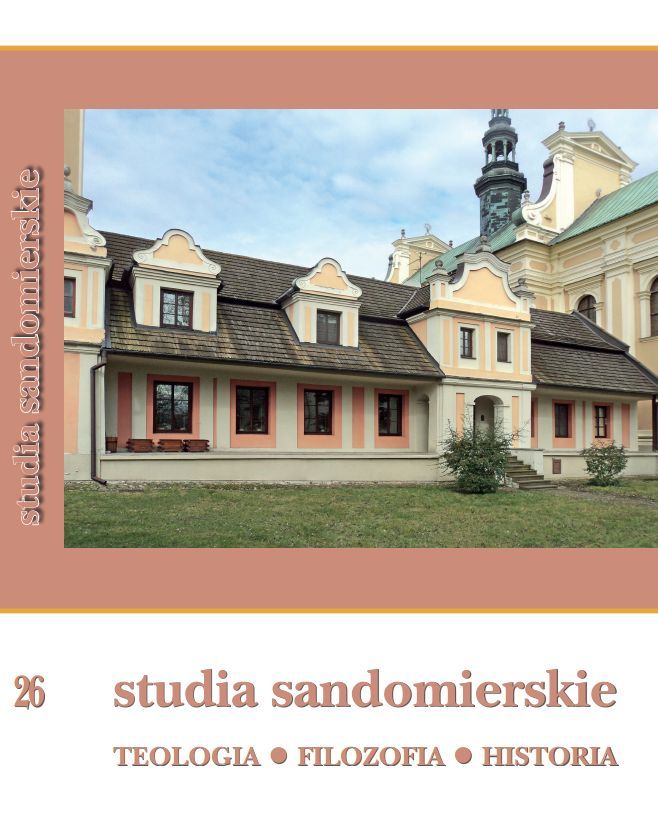Związki ks. Józefa Pastuszki z Akademią Duchowną w Petersburgu i Katolickim Uniwersytetem Lubelskim
DOI:
https://doi.org/10.15633/sts.3532Słowa kluczowe:
Ks. Józef Pastuszka, ks. Idzi Radziszewski, Akademia Duchowna w Petersburgu, Katolicki Uniwersytet LubelskiAbstrakt
Przyszły Profesor Katolickiego Uniwersytetu Lubelskiego, ks. Józef Adam Pastuszka, w 1912 r. rozpoczął studia w Wyższym Seminarium Duchownym w Sandomierzu i realizował je do pierwszej wojny światowej, która w następstwie działań wojennych w 1915 r. wraz z rodzicami i rodzeństwem zaprowadziła go na Wschód w okolice Brześcia. Kiedy udało mu się przedostać do Petersburga, podjął przez dwa lata kontynuację studiów w tamtejszym seminarium duchownym. Po czym przez rok 1917/1918 był studentem Akademii Duchownej w Petersburgu, gdzie miała swój początek, niejako „prehistorię” uczelnia lubelska. Rektorem Akademii był wówczas ks. Idzi Radziszewski.
W roku 1917/1918 ówczesny rektor Akademii w Petersburgu podjął organizację Uniwersytetu Lubelskiego. W swoich wspomnieniach ks. Józef Pastuszka wyraził przekonanie, że zaistniały związki pomiędzy Akademią Duchowną w Petersburgu, która po rewolucji październikowej przestała istnieć, a powołanym do życia w 1918 r. Uniwersytetem Lubelskim. Związki te opierały się na tym, że rezydujący w Petersburgu arcybiskup mohylowski, jako zwierzchnia władza Akademii, przelał prawa i przywileje Akademii na Uniwersytet Lubelski.
W lipcu 1918 r. jako subdiakon Józef Adam Pastuszka wrócił do kraju. Mając ukończony pierwszy rok studiów w Petersburgu został przez sandomierską władzę diecezjalną skierowany na studia do Innsbrucka (Austria). Pod koniec października 1920 r. otrzymał dyplom doktorski, a 1930 przeprowadził colloquium habilitacyjne na Uniwersytecie Jagiellońskim i uzyskał tytuł docenta filozofii i podjął pracę na Wydziale Teologicznym Uniwersytetu Warszawskiego. W 1934 r. został zatrudniony na Wydziale Humanistycznym Katolickiego Uniwersytetu Lubelskiego. Z chwilą wybuchu wojny w 1939 r. Uniwersytet Lubelski przerwał działalność. W połowie kwietnia 1945 r. Profesor powrócił do Lublina i objął dawną katedrę psychologii ogólnej w Katolickim Uniwersytecie Lubelskim. We wrześniu 1952 r. został usunięty z Uczelni. W 1956 ks. Józef Pastuszka znów powrócił do pracy na KUL.
W lipcu 1969 r. przeszedł na emeryturę, w 1978 r., opuścił Lublin i zamieszkał w domu kapitulnym w Sandomierzu. Zmarł 13 stycznia 1989 r. w Sandomierzu, 17 stycznia w katedrze sandomierskiej odbyły się uroczystości pogrzebowe, 21 stycznia 1989 r. został pochowany w rodzinnej parafii Rzeczniowie.
Pobrania
Opublikowane
Numer
Dział
Licencja
Prawa autorskie (c) 2021 Halina Irena Szumił

Utwór dostępny jest na licencji Creative Commons Uznanie autorstwa – Użycie niekomercyjne – Bez utworów zależnych 4.0 Międzynarodowe.
Autorzy publikujący w czasopiśmie udzielają jego wydawcy zgody o następującej treści:
- Autor zachowuje autorskie prawa majątkowe do utworu, a jednocześnie udziela wydawcy czasopisma zgody na jego pierwszą publikację w wersji drukowanej i wersji online na licencji Creative Commons Uznanie autorstwa 4.0 Międzynarodowe oraz zgody na wykonywanie opracowań, w tym przekładów.
- Autor ma możliwość udzielania zgody niewyłącznej na opublikowanie utworu w wersji, która ukazała się w czasopiśmie (np. zamieszczenia go w repozytorium instytucjonalnym lub opublikowania w książce), wraz z informacją o jego pierwszej publikacji w czasopiśmie.
- Autor może umieścić swój utwór online (np. w repozytorium instytucjonalnym lub na swojej stronie internetowej) jeszcze przed zgłoszeniem utworu do czasopisma.

